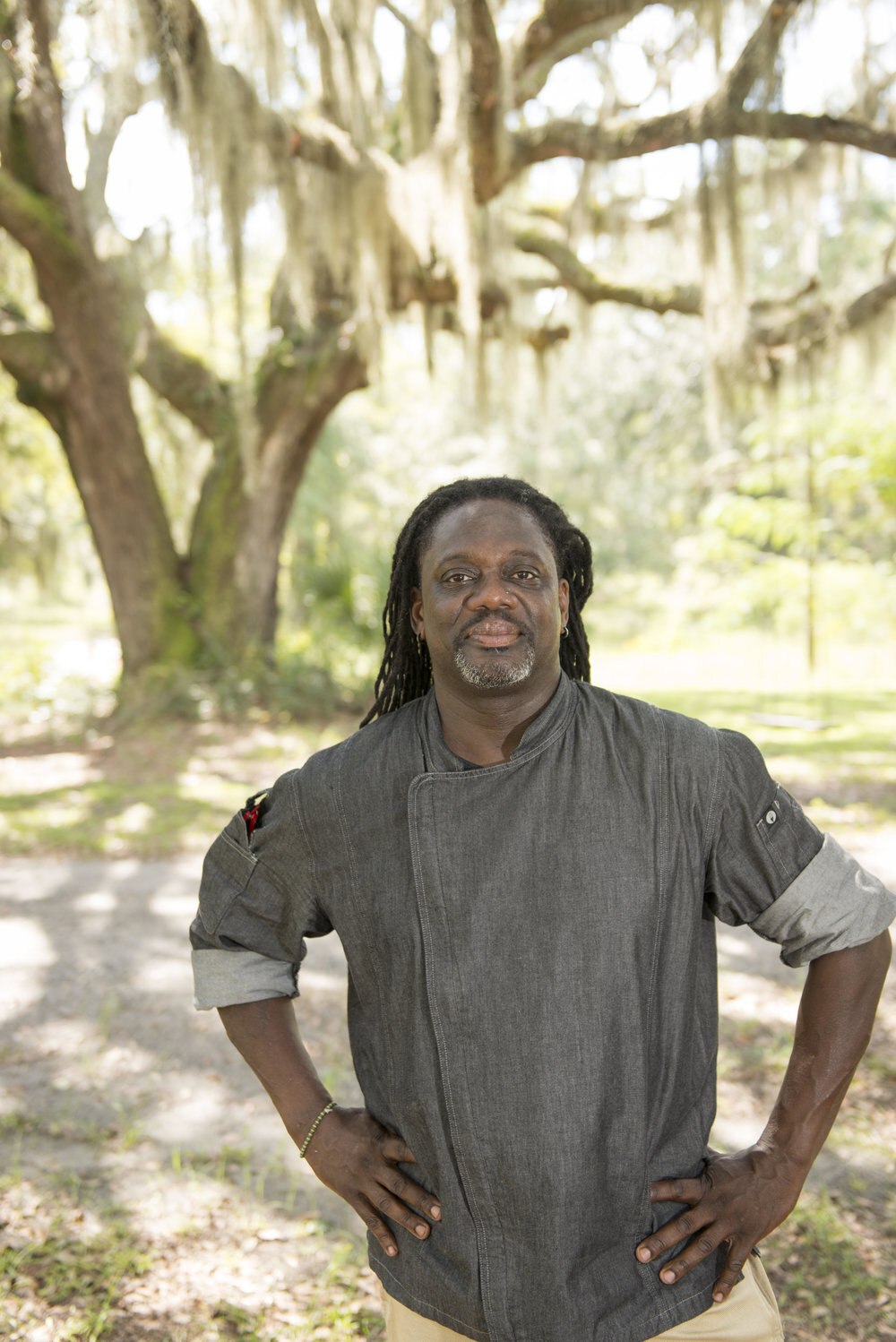By Yaza Sarieh
Yaza Sarieh is a contractor for Farm to School at Georgia Organics and a Childhood Health and Wellness intern at the Georgia Department of Public Health.
To learn more from Leah Penniman and Chefarmer Matthew Raiford’s perspective, join educators, school nutrition staff, early care providers, and agriculture professionals for the 8th Georgia Farm to School and Early Care and Education Summit to be held virtually April 27- May 1.
Visit farmtoschool.georgiaorganics.org/summit to view the agenda and register!
“Agroecosystems have a lot to teach us about equity. Generally, non-human beings are pretty good at collaboration, cooperation, and fairness. For example, a tree in the forest (or an orchard) will take its excess sugars and share them with other trees, kin, and non-kin, via a network of fungal mycelium. Humans have a harder time seeing resources as the commons that they are. Through a practice of cultural biomimicry, we can approach the just society we claim to desire.” - Leah Penniman
In communities throughout Georgia and the United States, racial inequities create food insecurity, and food insecurity creates racial inequities. During this year’s Georgia Farm to School and Early Education Virtual Summit, Leah Penniman and Matthew Raiford will teach us how Farm to School and Early Care and Education strategies can work to develop an equitable, just, and culturally responsive food system for all.
Courtesy of Leah Penniman
Leah Penniman has been a leader in the food justice movement for many years. Growing up in Albany, New York, Leah lived under food apartheid, the systematic destruction of food sovereignty and self-determination in minority communities. In a food apartheid environment, large corporate organizations exploit food-insecure conditions and racial disparities to make inexpensive, unhealthy food the easier, more accessible, and affordable option. As a result, these communities are vulnerable to chronic diseases that develop over time, such as diabetes, heart disease, or obesity.
Inspired by her food apartheid experiences, Leah established Soul Fire Farm as a “farm for the people.” Located in Petersburg, New York, Soul Fire Farm is committed to educating diverse communities about sustainable agriculture, connecting People of Color with local foods, restoring the natural environment, enhancing positive health outcomes, and pursuing complete self-determination with regards to food choice and accessibility.
Courtesy of Soul Fire Farm
To root food sovereignty and grow a more equitable and just food system for generations to come, Soul Fire Farm emphasizes engagement with young folk living in food apartheids. “Liberation of the Land,” a one-week program for youth, brings together around 500 young people each year from across the region to learn about farming, food preparation, arts, and activism. Leah reflects, “Connection to land is fortifying physical, emotional, and spiritual levels for young people. There are few things more empowering than learning to grow your own food, prepare it for your friends and family, and take care of an ecosystem.” Working with the youth has allowed Leah to experience firsthand the chance for the Farm to School movement to build a just, dignified and inclusive food system.
Courtesy of Matthew Raiford
Another Farm to School Champion who believes Farm to School and ECE is a key opportunity to enhance equity in food accessibility is Chefarmer Matthew Raiford. Gilliard Farms has been in Chefarmer Matthew’s family since 1870, when his great great great grandfather Jupiter Gilliard obtained the land in the post-Civil War era. Stewards of this land for over six generations, the descendants of Jupiter Gilliard have worked to build a sustainable, organic farm based on Gullah Geechee cultural practices. Matthew believes Gullah Geechee traditions of farming are applicable to Farm to School and ECE, mentioning, “The practices that we use are based on working with nature not against it, creating compost for better nutrient-dense foods and ensuring the food is relevant to the people eating it.”
During his Summit Session, Chefarmer Matthew Raiford will be discussing how ‘school is a farm,’ using references to the Union Schoolhouse that is on his property. This schoolhouse was the only educational space for African Americans in the community for a 20-mile radius for nearly five decades. The location was chosen specifically to connect students with the farmland so that no matter how far away they lived, they always had accessibility to a meal before and after their school day. In addition, the student’s educational experience was also centered around the farm, using the environment to learn concrete skillsets, knowledge, and lifestyles.
Chefarmer Matthew hopes to use this narrative to inspire the Farm to School and ECE movement to enhance food sovereignty and equitable access to healthy, fresh foods.
Matthew states, “I see where more school systems are working on providing culturally relevant food selections; I believe that is a step in the right direction because it causes us all to take a pause, I think about what’s on the plate from seed saving to cooking to eating.”
To learn more from Leah Penniman and Chefarmer Matthew Raiford’s perspective, join educators, school nutrition staff, early care providers, and agriculture professionals for the 8th Georgia Farm to School and Early Care and Education Summit to be held virtually April 27- May 1.
Visit farmtoschool.georgiaorganics.org/summit to view the agenda and register!



